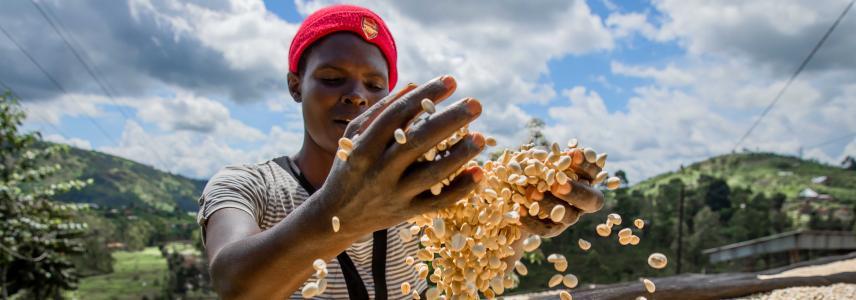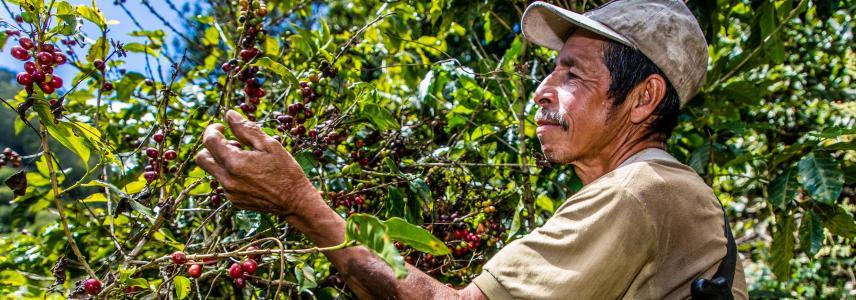CBI's top 5 coffee articles for International Coffee Day

Millions of people enjoy a cup of coffee every day and the coffee sector creates many income opportunities in developing countries. Every year, 1 October marks International Coffee Day. In 2022, the focus is on moving the coffee sector from a linear to a circular economy and on ways to make new products from coffee waste. But, before we celebrate a sustainable future in the coffee sector, we look back at 5 CBI coffee articles you enjoyed reading the most.
1. Youth inclusion project helps keep the Rwandan coffee sector alive

Coffee is a popular drink, so it is no surprise this article on a youth inclusion project to help keep the Rwandan coffee sector alive is in first place. Most of the small-scale coffee growers in Rwanda are ready to retire. To make sure their children or other young people take over businesses in the coffee sector, CBI partnered with Agriterra to launch the Speciality Coffee Rwanda project. The Specialty Coffee project also focused on Business Export Coaching (BEC), multi-crop farm management and gender equality improvement in the coffee sector.
2. Brexit's impact on the UK coffee industry

The United Kingdom (UK) is one of the largest coffee-consuming markets. When the UK officially left Europe in 2020, every industry analysed the possible impact on their activities. We noticed you were eager to read about the many ways Brexit affected the coffee industry. Read more in our study: Which trends offer opportunities or risks in the European coffee market?
3. Central American coffee companies ready for the European market

In third place is this article on the speciality coffee companies ROSMA COFFEELAND and Proexports. Both participated in CBI's Connecting Central America project, helping them to prepare for the European market. The project was a great success, thanks to the support of local partners, the dedication of experts and, of course, the enthusiasm of entrepreneurs. Do you know what requirements coffee must meet to be allowed on the European market? Make sure you also read our 10 tips for finding European coffee buyers.
4. Increased certified coffee consumption in Europe despite COVID-19 pandemic

COVID-19 was on everyone's mind, and still, many of you are interested in this article on how the market for coffee has grown during the pandemic. That growth is due mainly due to European consumers' attention to ethical consumption. Are you curious about opportunities? Then read our study on the demand for coffee in the European market.
5. Blockchain: Using technology to improve traceability in the coffee sector

Last but not least, many believe that blockchain technology could improve the supply chain's accuracy, traceability and efficiency in the coffee sector. In recent years, many blockchain projects have been set up by NGOs, support organisations and the private sector. Are you interested in this subject? Go to our coffee market intelligence page to read more about blockchain and other interesting developments in the European coffee market.
Get the latest CBI news
For more news and stories, visit the news section of the CBI website.
To stay informed on the latest news in the coffee sector, subscribe to our newsletter.